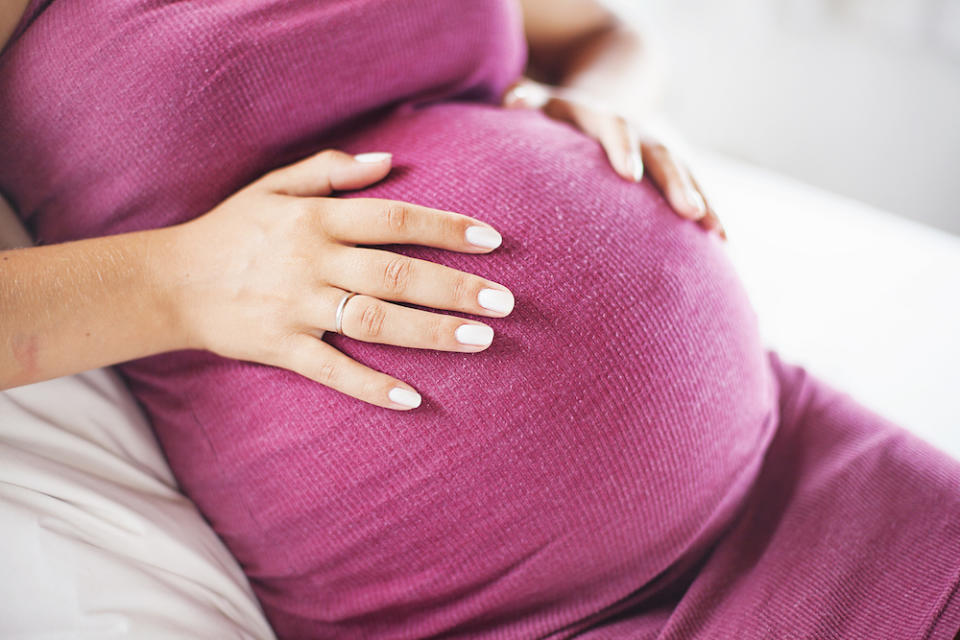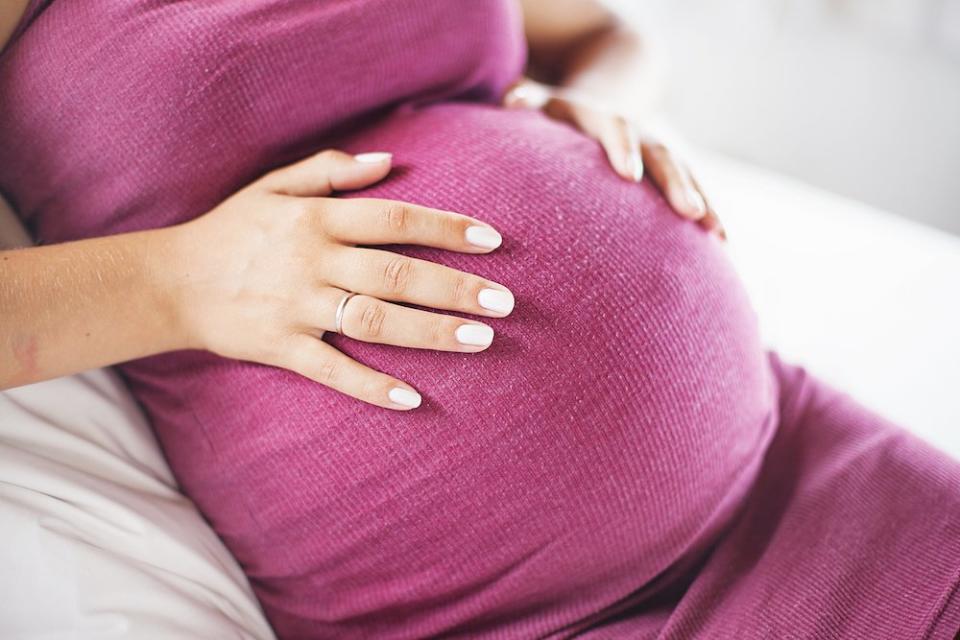Normal Weight Gain in Pregnancy: 3 Big Myths Debunked

Weight gain is a dreaded topic for most women at any time—and pregnancy is no exception. With the recommended amount of weight gain during pregnancy changing so much throughout the years, it's easy for women to feel conflicted.
In the 1950s and 1960s women were usually told they shouldn't gain more than 10 to 15 pounds. When this resulted in small babies being born with health issues, the emphasis on weight control ended and the "eat for two" movement began. That started to change in the late 1990s as the rate of obesity increased in the United States. Fast forward to today and there are many misconceptions about pregnancy weight gain.
"How much weight you should gain in pregnancy can depend on a number of important factors," says Sherry A. Ross, M.D., a practicing OB-GYN for 25 years in Santa Monica, California. "What is your age and what is your pre-pregnancy weight? Are you having twins? Do you have any additional medical conditions, such as gestational diabetes or hypertension, that will affect the overall recommended weight gain?"
So how much weight is OK? Experts break it down while debunking three of the biggest myths about pregnancy weight.
MYTH: I can gain a lot of weight during pregnancy
Truth is, there's a limit a mom-to-be should follow. The American College of Obstetricians and Gynecologists' (ACOG) guidelines advise women with a pre-pregnancy body mass index (BMI) of 18.5 to 24.9 to gain 25 to 35 pounds, those that are overweight 15 to 25 pounds, and obese women 11 to 20 pounds.
Dr. Ross, the author of
She-ology: The Definitive Guide to Women's Intimate Health. Period.
, also notes the importance of controlling an abnormally low or high BMI before planning to get pregnant so there's no disruption in ovulation. "Ideally, you and your partner want to allow yourself six months to go through a checklist of pre-planning before actually becoming pregnant to create the foundation for a healthy pregnancy and baby. Eating a colorful diet, exercising regularly and controlling your BMI are important parts of planning to have a successful, complication-free pregnancy," Dr. Ross says.
A study led by Alan Peaceman, M.D., supports the need for women to focus on their weight prior to conceiving. The study used teleconference calls with nutritionists, exercise, and online monitoring on over 1,000 pregnant women from diverse populations to try and reduce excess weight gain mainly in the second trimester. The intervention was successful in reducing weight gain by an average of four pounds, but the reduction did not result in fewer complications.
"The second trimester may be too late to change important outcomes," says Dr. Peaceman, professor and chief of maternal-fetal medicine at the Northwestern University Feinberg School of Medicine in Chicago, Illinois. "To lower the risk of complications, women may have to start changing their lifestyle before, or immediately after they conceive."
Research has shown that women who are overweight or obese during pregnancy are at an increased risk of having a miscarriage and developing gestational diabetes, high blood pressure, and pre-eclampsia. They're also more likely to have a premature baby, require a C-section, and have children that are more likely to become obese and have health problems.
MYTH: Not gaining extra weight during pregnancy is a bad thing
On the other hand, not everyone has to worry so much about not packing on pounds. "For women who are already overweight, this is not usually a problem," Dr. Peaceman says. "It is only a problem if the fetus is not growing appropriately."
But women of all sizes should really be conscious of what they consume. Dr. Peaceman emphasizes portion control and composition of meals. Adding fruits and vegetables and avoiding fast food, desserts, and sugary drinks, such as juices, sodas, and sweet teas, is crucial. Women, he says, should also focus on eating more protein instead of carbs.
RELATED: How to Lose Baby Weight
MYTH: I have to eat for two
Sorry ladies, but giving into those cravings isn't always necessary. Dr. Ross says a woman will, generally, only need to consume 100 to 300 more calories a day to meet the needs of a growing baby. "Guidelines are to gain about 2 to 4 pounds during your first three months of pregnancy and 1 pound a week for the remainder of your pregnancy," she says.
And try not to worry too much about your post-baby body. "The good news is that 95 percent of women will return to their normal body weight within nine months of having their baby," Dr. Ross says.


